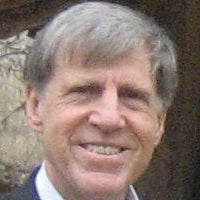
| Follow @RonmcfarlMc
Tokyo, Japan
Ron McFarland has been working in Japan for over 40 years, and he's spent more than 30 of them in international sales, sales management training, and expanding sales worldwide. He's worked in or been to more than 80 countries. Over the most recent 17 years, Ron had established distributors in the United States and throughout Europe for a Tokyo-headquartered, Japanese hardware cutting tool manufacturer. More recently, he's begun giving seminars in English and Japanese to people interested in his overseas travels and expanding business overseas. You can find him on LinkedIn.

Authored Comments
Yes, that is a problem. With distributed energy, which produce clean water can lead to the support of larger populations. That will lead to education which will lead to population growth control.
Yes, population growth, and the pace of growth, is a problem. But consider this. If all regions of the world had access to unlimited amounts of energy, water could be purified from the ocean. Through available water, food can be grown anywhere in the world almost. This would support that population growth.
Further, with better education around the world, particularly among girls and women, the population growth itself will start to go down. There is much data to support this.